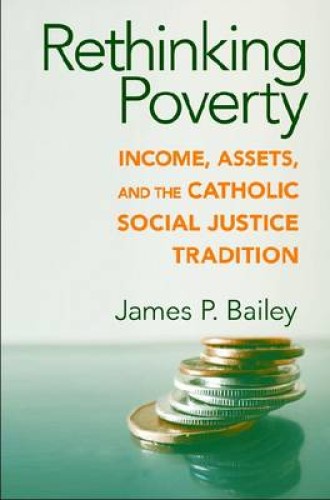Rethinking Poverty, by James P. Bailey
James Bailey has written a superb, creative and timely book whose primary audience should be the U.S. Congress. Unfortunately, the current members of Congress do not seem to possess the intellectual wattage necessary to profit from it. As a supercommittee of our congressional leaders meets to ponder reductions of federal expenditures of more than a trillion dollars and possible reform of the federal tax code, Bailey's wise volume could provide some Christian guidance.
Bailey describes and advocates adoption of what he calls asset building for the poor, a new strategy for fighting poverty by expanding lower-income people's financial and social assets. The reigning policy orthodoxy is that poverty is a function of income flow and consumption of goods and services. The goal of an asset-based strategy is to help people build a secure financial foundation that will keep them out of poverty.
Bailey gives a strong introduction to this emerging field of social and policy analysis. One astonishing aspect of his argument involves the degree to which the federal tax code favors the nonpoor's accumulation of wealth through mechanisms such as tax-favored retirement accounts and the mortgage interest deduction. These benefits accrue primarily to people who pay a substantial amount in federal income taxes. Why not offer incentives for wealth accumulation to people with lower income as well?






